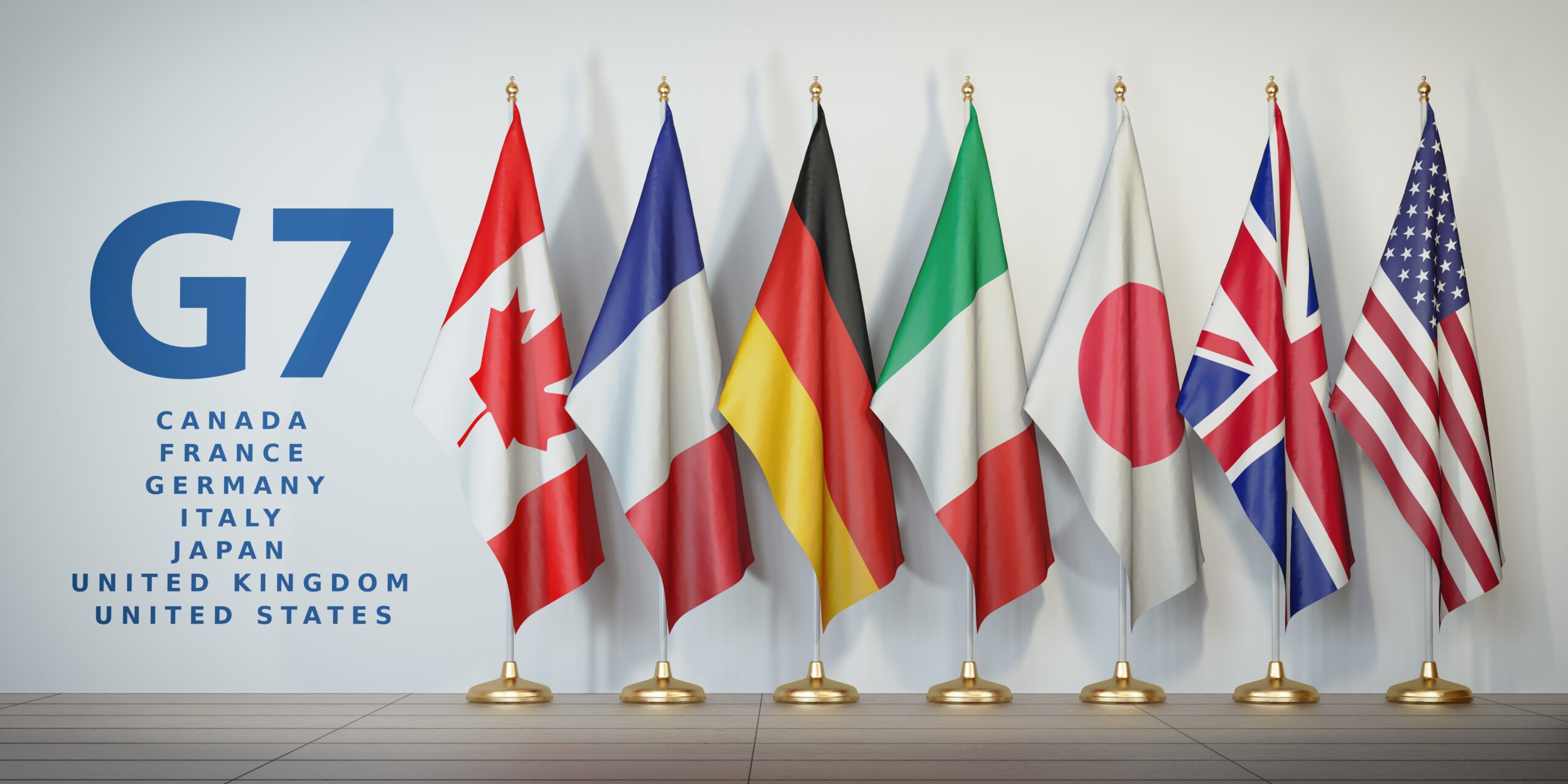G7 Leaders Seek Unity Amid Market Turmoil Sparked by U.S. Trade Moves
10.04.2025 19:00 2 min. read Alexander Stefanov
Amid growing turbulence in global markets triggered by a wave of U.S. tariffs, Canada is actively engaging with key international partners to contain the fallout.
As chair of the Group of Seven (G7) nations, Canada has launched coordinated discussions with Japan and the European Union aimed at preserving financial stability.
In a recent call, Canadian Finance Minister François-Philippe Champagne and his Japanese counterpart Katsunobu Kato shared mounting concerns over the destabilizing effects of Washington’s latest trade measures. Canada also reached out to EU Commissioner Valdis Dombrovskis to assess the wider repercussions.
The flurry of diplomatic outreach follows the Trump administration’s broad tariff rollout on April 2, which sent shockwaves through global markets. Investors, spooked by the uncertainty, began offloading even traditionally safe assets like U.S. Treasuries. Although President Trump has since introduced a temporary pause on most tariffs, he simultaneously hiked levies on Chinese imports—adding fresh pressure to an already fragile environment.
Japan has signaled its intent to work closely with the G7 and the IMF to address market instability, according to its chief currency official. Canada, meanwhile, reaffirmed its dedication to ongoing collaboration with G7 peers in navigating the turbulence.
Historically, the G7 has served as a platform for unified responses during financial crises. But this time, the disruption stems from within the group’s most powerful member, complicating the usual playbook. Italian Economy Minister Giancarlo Giorgetti said non-U.S. G7 countries have been attempting to steer Washington toward a more measured approach.
The UK confirmed its financial authorities remain in contact with global partners and expects the issue to be a key topic when G20 finance officials gather in Washington for the upcoming IMF spring meetings.
-
1
This Country Just Banned the U.S. Dollar in Domestic Transactions
19.05.2025 19:00 2 min. read -
2
Brazil Pours Cold Water on BRICS Currency Hopes, Citing Major Asset Gap
22.05.2025 10:00 1 min. read -
3
Japan Faces Mounting Financial Stress as Bond Market Cracks
20.05.2025 9:00 1 min. read -
4
Jamie Dimon Says U.S. Recession Still a Real Possibility Amid Global Instability
17.05.2025 19:00 1 min. read -
5
Trump Defends Tariffs as Legal Battles and Global Trade Talks Escalate
03.06.2025 21:00 2 min. read
Trump Defends Tariffs as Legal Battles and Global Trade Talks Escalate
Donald Trump is doubling down on his pro-tariff stance, crediting the policy for what he calls a booming U.S. economy.
Robert Kiyosaki Warns of Deepening Financial Crisis, Urges Shift to Bitcoin and Precious Metals
Robert Kiyosaki, author of Rich Dad Poor Dad, has raised alarm bells once again—this time warning that the financial system may already be in the early stages of a historic downturn.
Jamie Dimon Warns U.S. Risks Losing Dollar Dominance Without Swift Reform
JPMorgan Chase CEO Jamie Dimon has delivered a stark message about America’s financial trajectory, cautioning that the U.S. dollar’s role as the world’s reserve currency could come under threat if deep-rooted fiscal problems aren’t addressed soon.
Jamie Dimon Predicts Bond Market Shock, Urges U.S. to Fix Its Foundations
Jamie Dimon, CEO of JPMorgan Chase, has voiced fresh concerns about the state of the U.S. economy, warning that financial markets may be heading into troubled waters—particularly the bond market.
-
1
This Country Just Banned the U.S. Dollar in Domestic Transactions
19.05.2025 19:00 2 min. read -
2
Brazil Pours Cold Water on BRICS Currency Hopes, Citing Major Asset Gap
22.05.2025 10:00 1 min. read -
3
Japan Faces Mounting Financial Stress as Bond Market Cracks
20.05.2025 9:00 1 min. read -
4
Jamie Dimon Says U.S. Recession Still a Real Possibility Amid Global Instability
17.05.2025 19:00 1 min. read -
5
Trump Defends Tariffs as Legal Battles and Global Trade Talks Escalate
03.06.2025 21:00 2 min. read


